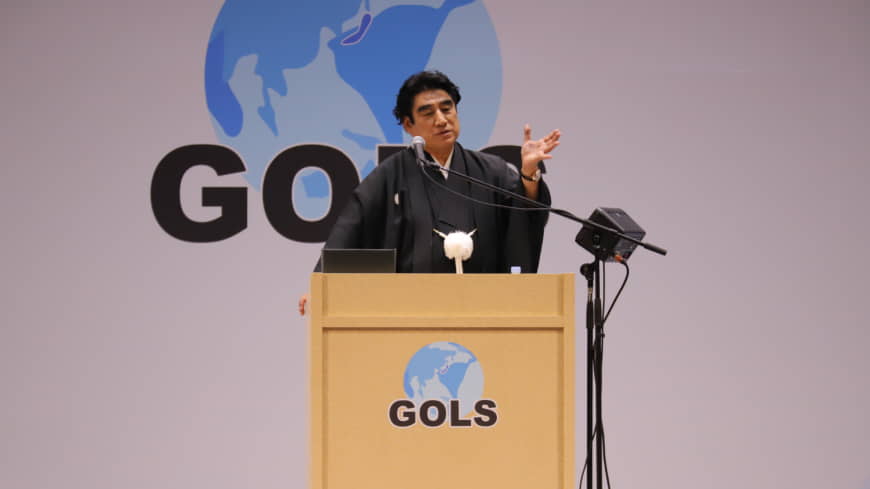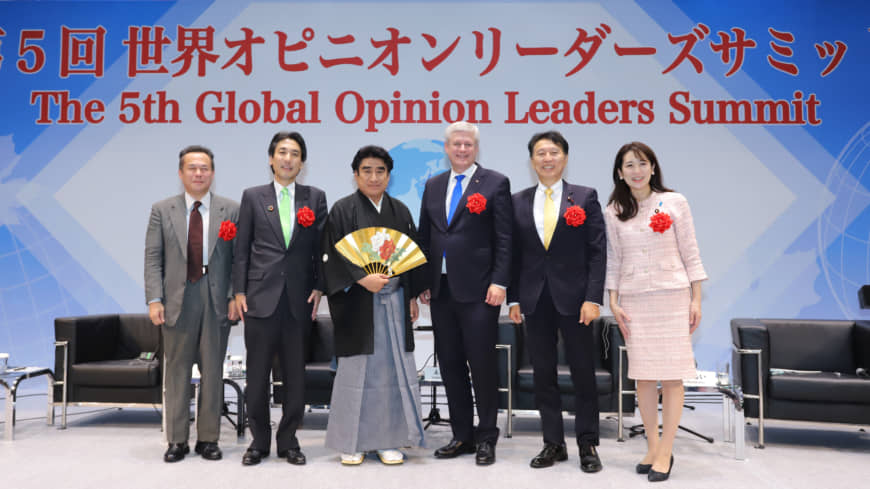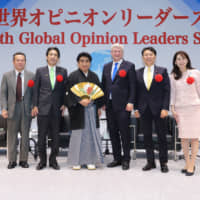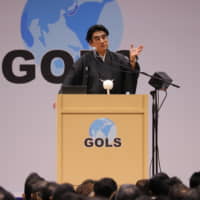The fifth Global Opinion Leaders Summit was held in Tokyo on Oct. 17 with former Canadian Prime Minister Stephen Harper delivering the keynote before a panel discussion on geopolitical and economic issues.
The summits are sponsored by Worldwide Support for Development, an international aid organization founded by spiritual figure and humanitarian Haruhisa Handa, who serves as its chairman and moderated the event. Previous summits have drawn luminaries including former U.S. President Barack Obama and ex-British Prime Minister Tony Blair.
Harper, 60, led Canada for almost a decade from 2006 until 2015 and is now chairman and CEO of Calgary-based Harper & Associates Consulting. In 2018 he published “Right Here, Right Now: Politics and Leadership in the Age of Disruption.”
Drawing from his work, Harper described a world beset by huge changes wrought by the revolution in technology and globalization of the economy.
“Disruption is everywhere today,” he said. “And the scope, the scale and the speed of disruption are all unprecedented.”
Global politics and international relations have not been spared, he said, citing growing inequality, the divide between elites and populists and China’s rise. He also posited the latter, rather than resulting in the increasing economic and democratic liberalization many had expected, has brought forth a country determined to exert global leadership on its own political and economic terms.
That, combined with the emergence of U.S. President Donald Trump and his abandonment of a longstanding bipartisan U.S. policy of engaging China with one that sees it instead as an unfair competitor, have led to their ongoing trade war.
Despite strains that changes in the global order have brought to many democracies, Harper said he still sees the Western model as ultimately prevailing and that China’s shift to a more authoritarian governance under President Xi Jinping will prove to be a mistake.
Harper said that the democratic capitalist model, though imperfect, “is a system that is resilient and adaptable. Indeed, I think the current strife in some ways underscores the strength of the model. It is a system that hears about problems and that shows response in the face of challenges.”
Amid such global upheaval, Harper said “middle power” countries Canada and Japan, which he said have “avoided much of the upheaval that we see in the rest of the Western world,” should work together and with others to “sustain a rules-based world order.” He praised Prime Minister Shinzo Abe for sticking with the Trans-Pacific Partnership (TPP) after Trump pulled the world’s largest economy out of the trade grouping, now known as the Comprehensive and Progressive Agreement for Trans-Pacific Partnership. Canada is also a member.
Harper also championed the Group of Seven advanced nations, which he said remain important due to common interests and values despite the rise in influence of the Group of 20 after the financial crisis. But he called for bolstering the G7 by increasing its Asia-Pacific weighing with the addition of Australia and South Korea.
During the panel discussion, Rui Matsukawa, a ruling Liberal Democratic Party (LDP) member in the Diet’s Upper House, agreed with Harper that democracies will win out, but pressed him on whether China, with its strong government, has an advantage in long-term planning.
Harper said it is undeniable China has “accomplished great things” and is almost certainly destined to become the world’s largest economy. However, he cautioned against giving too much credit to central planning and the role of the government. To him, China’s biggest contribution was that it “freed the entrepreneurial spirit of many of its people” and should continue down that road. “I think if China is actually going to continue to move forward and be a dominant country then China should be going further in that direction,” he said.
Handa also cast doubt on centralized control. “I don’t think it’s necessarily good to make a long-term plan as you can see from the collapse of the Soviet Union,” he said.






